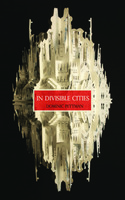In Divisible Cities: A Phanto-Cartographical Missive
Author(s)
Pettman, Dominic
Collection
ScholarLedLanguage
EnglishAbstract
In Divisible Cities takes Italo Calvino’s classic re-imagining of Venice, viewed in the mind’s eye from many different metaphysical angles, and projects it on to the world at large. Where the Italian saw his favorite city as an impossible metropolis of many moods, shades, and ways of being, this unauthorized sequel unpacks the Escheresque streets in unexpected directions. In Divisible Cities is thus an exercise in cartographic origami: the reflective and poetic result of the narrator’s desire to map hidden cities, secret cities, imaginary cities, impossible cities, and overlapping cities, existing beneath the familiar Atlas of everyday perception. Stitching these different places and spaces together is a “double helix” or “Siamese seduction” between the traveler and his romantic shadow, revealing — step by step — a clandestine itinerary of hidden affinities, nestled within the habitual rhythm of things. Matter matters. That’s what the drone of the city tells us. And yet we dream of something beyond these invisible walls. Were I an architect-deity, I would create an Escheresque subway system, linking all the cities in the world. The tunnels themselves, and the people decanted from one place to the other, would eventually create an Ecumenopolis: a single and continuous city, enlaced and endless. Were this the case I could get on the F train at Delancey Street, Manhattan, and — after a couple of changes mid-town — emerge in the night-markets of Taipei, or near the Roman baths of Budapest. Or perhaps even downtown Urville.
Keywords
imaginary geography; fiction; travel; love; mapsDOI
10.21983/P3.0044.1.00ISBN
9780615853192OCN
945782703Publisher
punctum booksPublisher website
https://punctumbooks.com/Publication date and place
Brooklyn, NY, 2013Classification
Modern and contemporary fiction: general and literary


 Download
Download